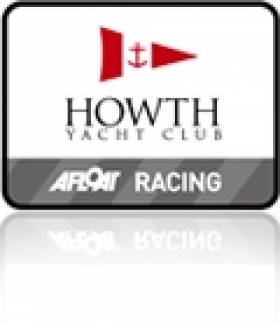Displaying items by tag: Roger Cagney
Howth Yacht Club Lays Out 2011 Sailing Programme
At a launch reception in the club on Thursday 31st March attended by representatives of local commerce, tourism and community bodies, HYC Commodore Roger Cagney announced that in addition to junior and adult sail training courses and club racing four days a week in the summer months, the Club would host over 20 open events during the year.
"We are used to sailing being a year-round activity," he said, "but even by our standards this will be an exceptionally busy year for Howth Yacht Club. We are fortunate in the number of talented volunteers we can call upon to help make these events successful and we have an enviable track record in this regard. We are also extremely grateful for the sponsorship of individual events from commercial concerns, details of which will be released in due course."
The major event on the 2011 calendar is undoubtedly the European Championship of the J24 Class, the world's most popular racing keelboat, when over 200 sailors from six or more countries will compete in the four-day regatta in September.
Howth will also host the Irish Championships of four classes – Puppeteer, Squib, Howth 17 and Optimist – between July 1st and late-August, with the latter attracting up to 200 competitors, together with their families, coaches and supporters. In addition, HYC will run the SB3 Eastern Championships (end April), the RS Feva Leinsters (late May) and the Dublin Match Racing Open (in J80s in early September).
The club's programme also comprises the Spring Warmer series in April, the annual Lambay Races on June 11th, the Dinghy Regatta a week later and the ever-popular Autumn League over five weekends in September/October.
























































